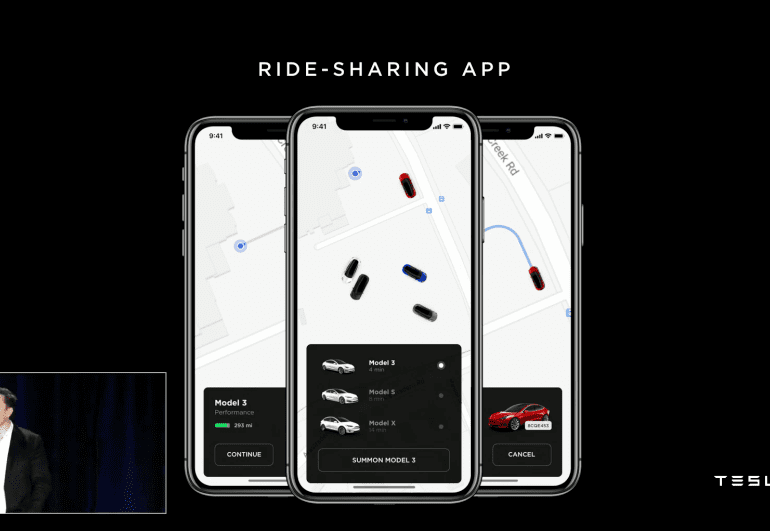Elon Musk Reveals Plan To Establish Tesla ‘Ride Sharing Service’ by 2020
From an investor’s perspective, it can be argued that Elon Musk’s eccentricity lands him in hot water more often than what is desirable, but there is no denying that it is also what fuels his ambitions and vision for the future of our world (and beyond). Today, Musk announced his latest project at Tesla’s ‘Autonomy Day’ event which took place at the company’s California headquarters.
Though this new venture takes place on Earth, it is no less interesting or ambitious of a target than any of his other proclamations. Musk made it very clear to investors at the event, that a Tesla-operated autonomous taxi service will be rolled out in 2020. I have a feeling that as he loves to shake things up in the tech world, it should come as no surprise that this statement is being made after soon-to-be-rival ridesharing company, Uber, announced that it will become publicly traded at the beginning of May.
As opposed to functioning entirely on a fleet of commercially-designated Tesla vehicles, the service being offered will rely heavily on existing Tesla owners with compatible cars to ‘share’ their car on the ‘Tesla Network’, which in theory makes it more akin to ridesharing than a mainstream taxi service. The differentiating factor, of course, is that Tesla’s service will be fully autonomous.
Musk cleverly made sure to convey that the service was not only appealing to its future users but also to existing and potential purchasers of his electric cars. He made bold claims, such as stating that owners could earn as much as $30,000 per year lending their car to the Network during periods when they wouldn’t need it for personal use – such as during holidays, work trips or general downtime.
Powered by new Samsung chips, Tesla’s latest version of autonomous driving software and hardware will, as Musk explained, “…be able to drive themselves anywhere on the planet, on any road and in any/all possible weather conditions without anyone watching over the controls.” This means that Tesla’s autonomous cars, in theory, are not limited to specific environments or circumstances and should be able to travel anywhere a human-operated vehicle can (and maybe more). It also means that drivers (or more accurately, riders) won’t have to pay attention to the road – ever again – should they choose to embrace full-autonomy.
Fully self-driving vehicles, once and for all, plain and simple.
The Tesla boss confidently iterated that there will be over 1-million self-driving taxis on the road when the service is rolled out. Elon Musk at it again; making certain that his inventions are as practical as they are unconventional.





